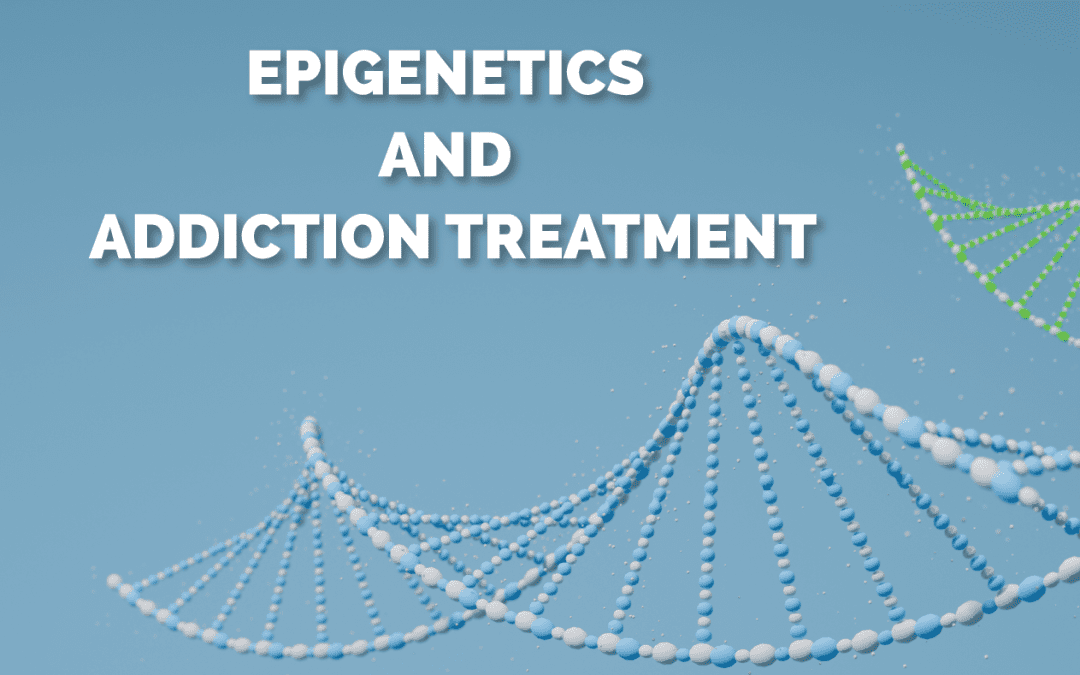In the field of addiction treatment, one of the emerging areas of study and research is the role of epigenetics. Epigenetics refer to changes in gene expression that are not caused by alterations in the DNA sequence itself but rather by modifications in the structure or function of the DNA. These modifications can be influenced by a variety of environmental factors, including lifestyle, stress, and exposure to substances of abuse. Understanding the epigenetic mechanisms underlying addiction can provide valuable insights into the development of more effective treatment approaches. In this article, we will explore the fascinating connection between epigenetics and addiction treatment and delve into how this knowledge can be utilized to improve outcomes for individuals struggling with addiction.
The Impact of Epigenetics on Addiction
Epigenetic Modifications
Epigenetic modifications can have a profound impact on the development and progression of addiction. These modifications can occur in response to chronic drug exposure and can influence various processes in the brain, including neurotransmitter signaling, reward pathways, and stress response systems. By altering gene expression patterns, epigenetic modifications can lead to long-lasting changes in neuronal function and behavior, contributing to the persistence of addiction.
Transgenerational Inheritance
One intriguing aspect of epigenetics is its potential for transgenerational inheritance. Research has shown that certain epigenetic modifications acquired during addiction can be passed on to future generations, potentially predisposing offspring to an increased risk of developing an addiction. This phenomenon highlights the importance of understanding epigenetic mechanisms not only for individual treatment but also for addressing the broader impact of addiction on society.
Epigenetic-Based Approaches to Addiction Treatment
Targeting Epigenetic Mechanisms
The recognition of the role of epigenetics in addiction has opened up new avenues for developing targeted treatment approaches. By identifying specific epigenetic modifications associated with addiction, researchers have started exploring interventions that can reverse or modify these changes, thereby restoring normal neuronal function and reducing addictive behaviors. Some of the potential strategies being investigated include the use of drugs that can modulate epigenetic processes, such as DNA methylation inhibitors or histone deacetylase inhibitors.
Personalized Medicine
Another promising application of epigenetics in addiction treatment is the potential for personalized medicine. Epigenetic profiling of individuals can provide valuable information about their unique susceptibility to addiction and their response to specific treatments. This knowledge can help clinicians tailor treatment plans to each individual, maximizing the chances of successful outcomes. By incorporating epigenetic information into the treatment decision-making process, healthcare professionals can move closer to a more personalized and precision-based approach to addiction treatment.
Challenges and Future Directions
While the field of epigenetics holds great promise for improving addiction treatment, there are still several challenges that need to be addressed. Firstly, more research is needed to better understand the complex interplay between genes, epigenetic modifications, and addiction. Additionally, developing effective interventions that specifically target the underlying epigenetic mechanisms remains a significant hurdle. However, with advancements in technology and increased focus on interdisciplinary collaborations, the field is making rapid progress.
Conclusion
Epigenetics provides a unique perspective on addiction, highlighting the importance of environmental influences and the potential for long-lasting changes in gene expression. By unraveling the epigenetic mechanisms underlying addiction, researchers and clinicians can pave the way for more effective treatment strategies. Understanding how epigenetic modifications contribute to addiction and exploring ways to reverse or modify these changes opens up exciting possibilities for personalized and targeted interventions. By embracing the potential of epigenetics, we can take significant strides toward overcoming addiction and improving the lives of individuals and communities affected by this challenging condition.

